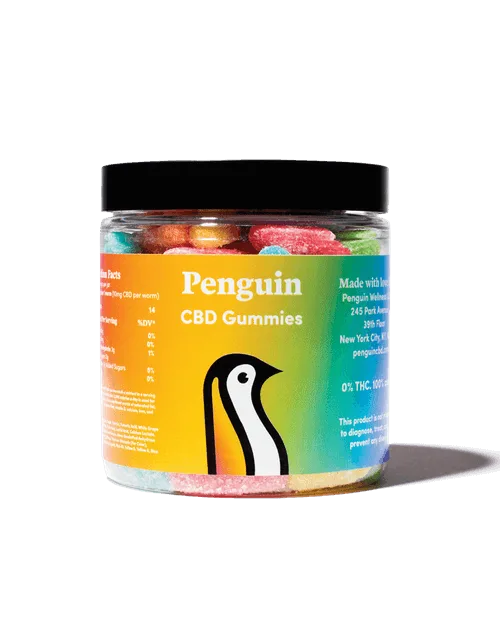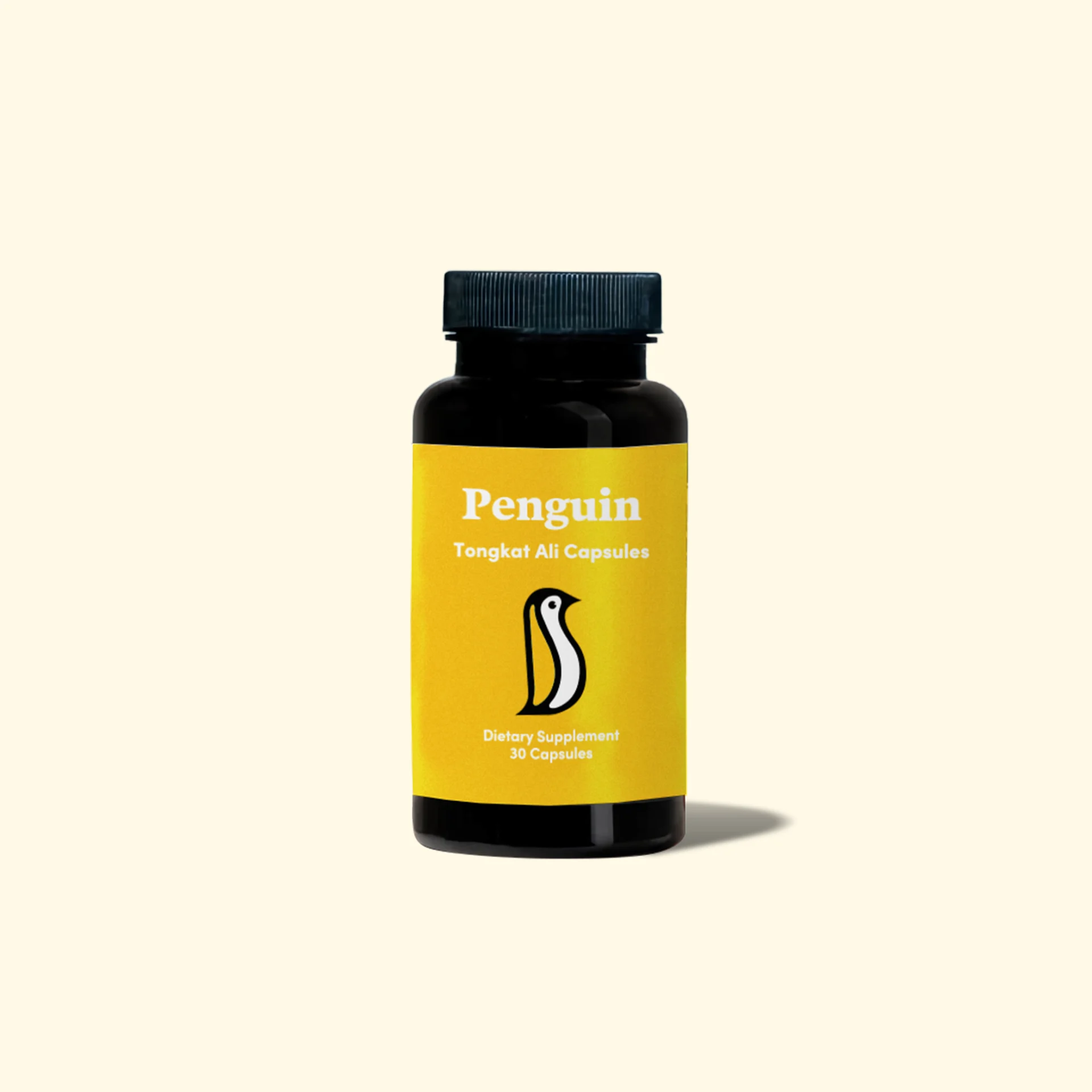CBD Explained: What Does CBD Do?
 By Penguin CBD
By Penguin CBDFrom wild titles to sensationalist stories to rumor and gossip, there is no shortage of information (and misinformation) online about cannabidiol, or CBD. That’s why we’re going to take the time to break down what CBD does and what it doesn’t do, and explore how we should be approaching CBD in a way that recognizes both the science and marketplace’s position.
Before we can start explaining what CBD does, let’s look at what CBD is.
CBD Defined: What Is Cannabidiol?
CBD is essentially two things: a plant compound within the class of phytocannabinoids, and an almost exact mirror of the endogenous cannabinoid that we humans produce—2-arachidonoylglycerol, or 2-ag, for short.
That’s right, humans produce their own cannabinoids. In fact, we produce two primary endogenous cannabinoids: anandamide and the aforementioned 2-ag. Since 2-ag mirrors CBD, you’ve probably guessed that anandamide is the human mirror of THC, the other well-known phytocannabinoid.
CBD is a plant compound that looks chemically similar to a naturally occurring endocannabinoid in humans. While Cannabis plants carry some stigma to this day, CBD has largely remained aloof from such criticisms.
That’s because, according to research from 2018 published in the scientific journal Molecules, “CBD does not possess any psychoactive effects.” Contrary to the image of its more popular counterpart, CBD is largely known only to promote wellness, not skew one’s perception of reality.
However, that does not mean CBD and the information surrounding its consumption are free from myths and conspiracy theories.
Popular Myths About the Consumption of CBD
There has been an explosion in both the number of CBD companies promoting their products, and the amount of incorrect and sometimes dishonest information regarding CBD consumption.
In fact, ever since the marketplace opened up, the FDA and FTA have been known to go after businesses that have been making false claims.
Here are some of the most popular myths told about CBD:
1. “CBD will get you high!”
You could take all the CBD in the world and never feel high from it. It’s simply not possible. So, of course, the lowest doses of CBD oil will never alter your perception of reality. That’s because CBD doesn’t interact with our endocannabinoid system (ECS) in the same way that other cannabinoids do.
In fact, CBD has a relatively low affinity for binding the two main receptors of the ECS, which is where the action of other phytocannabinoids induce feelings of euphoria, along with other mind-altering effects. Its propensity to act elsewhere in the body means it provides the support of Cannabis without the psychoactive effects frequently associated with its consumption.
2. “It works like magic!”
Abracadabra, your website is shut down! Poof!
Some websites have claimed that CBD somehow “works like magic” to treat illnesses. This isn’t true, and is potentially dangerous misinformation. CBD does not work like magic. In fact, the opposite is true.
There is real science behind CBD; the hyperbolic language about its properties is quite unnecessary. For instance, research into CBD has been going on for decades. Researchers have been performing all kinds of interesting experiments on cannabinoids, including a study from the early 1970s that wanted to see how CBD and THC interacted in terms of their radioactivity.
To claim that CBD “works like magic” to treat certain diseases is folly. Not only does it misrepresent what CBD can truly do; it completely overlooks what CBD does according to the scientific research.
3. “It’s a miracle [blank] remedy!”
We’re not sure why some resort to calling CBD a miracle remedy for a variety of major conditions. It’s an avoidance of truth, at best. However, it’s understandably a confusing topic, given the numerous headlines about CBD that appear in the news.
Sadly, the existence of ongoing research does not mean that CBD is a miracle cure. In fact, making such a claim is counter to what’s acceptable according to U.S. government agencies. It’s always best to treat these sorts of statements with a degree of skepticism.
4. “It treats major conditions!”
Again, it’s understandable why so many may want to claim this about CBD. It’s a selling point for the most dishonest, and hype for people simply seeking clicks and views.
Unfortunately, an overwhelming majority of cannabis-based research over the past century has studied it from the standpoint of “cannabis is a social and health problem to be solved.”
As a result, when weighted, the data often point to such problems. Only fairly recently have data started to point in the opposite direction, since researchers are now focused on (and getting funding for) the potential benefits of CBD.
One cannot claim that CBD treats major conditions because there aren’t enough data that satisfy the scientific community. Until the scientists say it’s so (and largely agree), advocates and other CBD companies that pretend it’s magic are simply spreading myths.
The Scientific Realities of CBD
Interesting data are starting to emerge from cannabidiol research. A 2020 article outlined the results of researchers probing the use of ultrasound-mediated delivery of CBD into specific areas of the brain.
While research like this isn’t exposing any new data about how effective CBD may be against certain diseases, it is showing us that there may be ways to explore its use more precisely, which could lead to interesting outcomes.
Research published in The FASEB Journal in 2020 showed us that CBD does have a molecular basis for potentially interesting properties. The data indicate that multiple metabolic pathways are impacted by CBD consumption and that their responses may induce proper wellness functioning. It’s becoming clear that CBD consumption can lead to benefits such as:
- Increased energy
- Greater and longer-lasting feelings of wellness throughout the day
- The improved maintenance of some metabolic pathways
- Better mood
If we want to discuss the scientific realities of CBD, we need to recognize that the science is still emerging, and the early research is both surprising and encouraging.
What Consumers Are Saying About CBD
The surprise and enthusiasm don’t end in the science lab, however. It’s obvious that consumers themselves are making all kinds of claims about what CBD does for them.
It would be easy to jump online and grab screenshots of tweets and Instagram photos in which people elaborate on their love for one CBD product or another.
However, if we truly want to know what the consumer is saying about CBD, we need to ask the marketplace how well CBD products are selling. Nothing speaks louder about the value of a product than the dollars it generates.
Statista has been following CBD sales in the United States since 2014. In the first year of recording sales, the United States sold roughly $108 million worth of CBD. By 2020, the final tally of CBD sold within the United States is expected to surpass $1 billion. That means CBD sales have grown by an order of magnitude within a decade.
Every consumer report indicates that CBD sales will continue to balloon in the United States. So, whether or not we screenshot images from online tweets about how much they love CBD, we can always look at the numbers. They say that consumers keep spending more and more on cannabidiol products.
The Many Ways That CBD Delivers on Its Promise
Yes, you should be wary of over-the-top claims made by some CBD companies. But that doesn’t mean that everything said about CBD is false. There’s a reason CBD is so popular and people return to the brands they love again and again.
It’s because they provide CBD consumption in a way that’s accessible, tasty and part of a balanced lifestyle. They do this by offering:
- An array of products, each with their own unique benefits
- A variety of flavors for each product
- A consistent experience
- Superior customer support and satisfaction
When it comes to offering the right products, CBD companies are never done trying to out-compete each other. It seems that every day a new drink, topical or edible comes out that claims to break the mold. Consumers largely know what they want already.
CBD oils, gummies, capsules and creams are often the most popular. However, when you buy CBD oil, it can give you the freedom you desire. Since the oil brings CBD in its already-active form, it can be added to nearly any food or drink in the morning. Naturally flavored CBD oil won’t overwhelm your tastebuds, and flavored oils may enhance your food or drink.
Snacking on CBD gummies gives people the ability to maintain their cannabinoid levels during the day without anyone asking questions. The best CBD gummies look like your typical snacks and can even blend right into your workday.
If you’re the type of person who wants to avoid eating sugar throughout the day, CBD tablets are just as discreet, without the added calories and compounds. Products like CBD tablets, therefore, are the best way for diet-conscious consumers to enjoy cannabinoids without negatively impacting any other aspect of their lives.
CBD clearly has a way of easily becoming a part of our daily routine and supporting our overall wellness, but what does CBD actually do?
What Does CBD Do?
We’ve talked about some of the important metabolic pathways that CBD inhabits and the processes by which it supports wellness.
We’ve discussed how positively consumers respond to its consumption given their continuously increased spending and vocal support of CBD products. CBD’s role in people’s lives, however, is often more holistic than statistical or anecdotal. What CBD really does is:
- Help balance natural processes by interacting with our endocannabinoid system when and where it is needed
- Maintain wellness through proper diet supplementation and a focused CBD regimen
- Promote health as part of a balanced lifestyle by boosting energy
- Alleviate some mild or occasional conditions by supporting the healthy function of normal regulatory mechanisms
That’s what CBD does for people at an individual level, but one of the most interesting stories about what CBD does involves what it’s done for the populace. Consider that CBD has become one of the fastest-growing industries in the United States. Couple that with the aforementioned personal benefits, and it’s clear that people have been benefiting from CBD via their checkbooks as well as their health.
We must also consider the conversation surrounding Cannabis. From being one of the most popular crops in the United States to becoming federally illegal with severe punishments and now returning to the limelight, its path has been arduous.
CBD has certainly led to increased awareness of what this plant offers. This awareness has helped people realize that they may have been duped by decades of false advertisement painting it as an evil plant.
That’s why we here at Penguin CBD believe it’s so important to take a fresh stance on CBD. People everywhere should embrace the reality that this is a useful compound that brings health and wellness to many.









